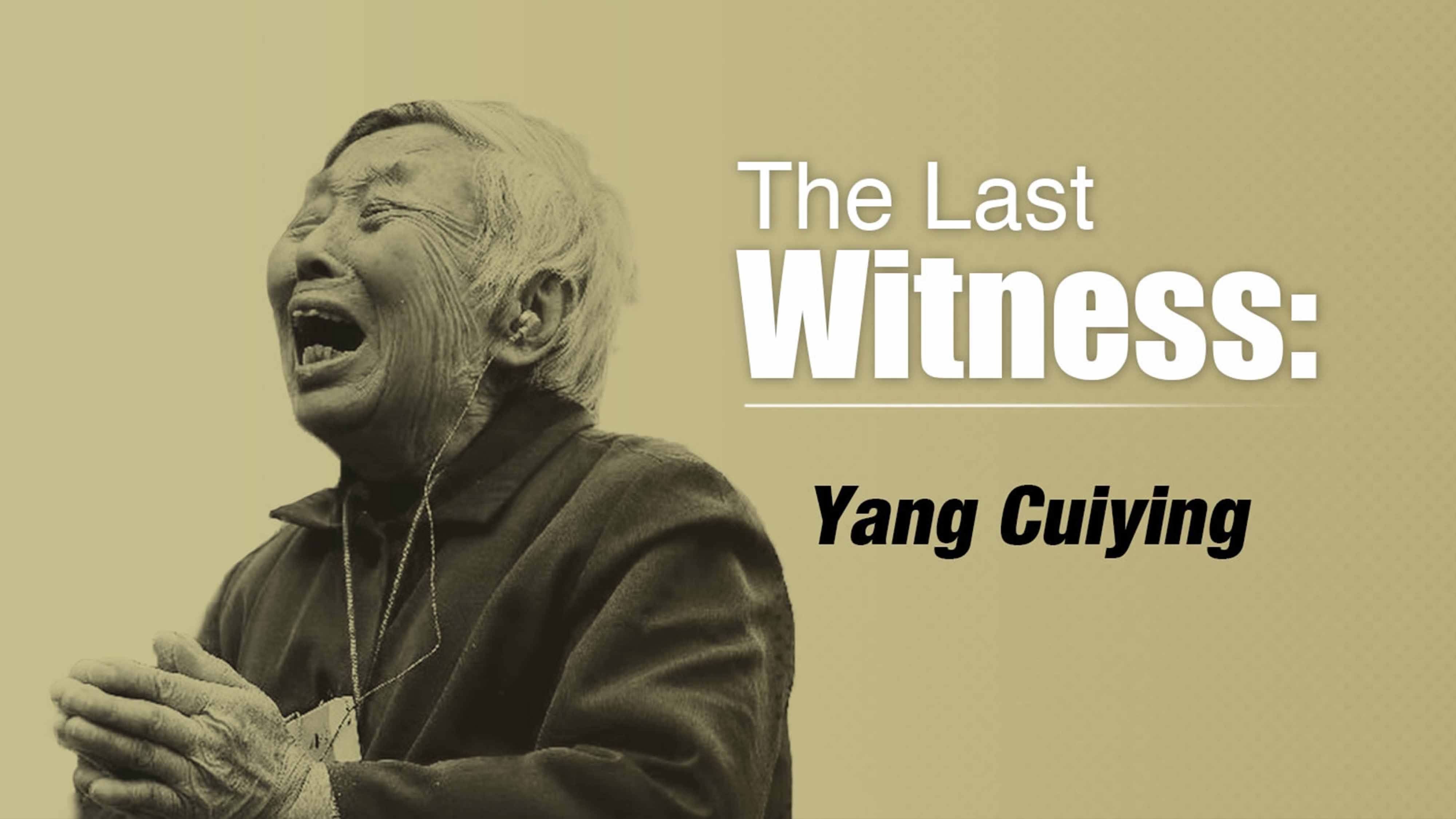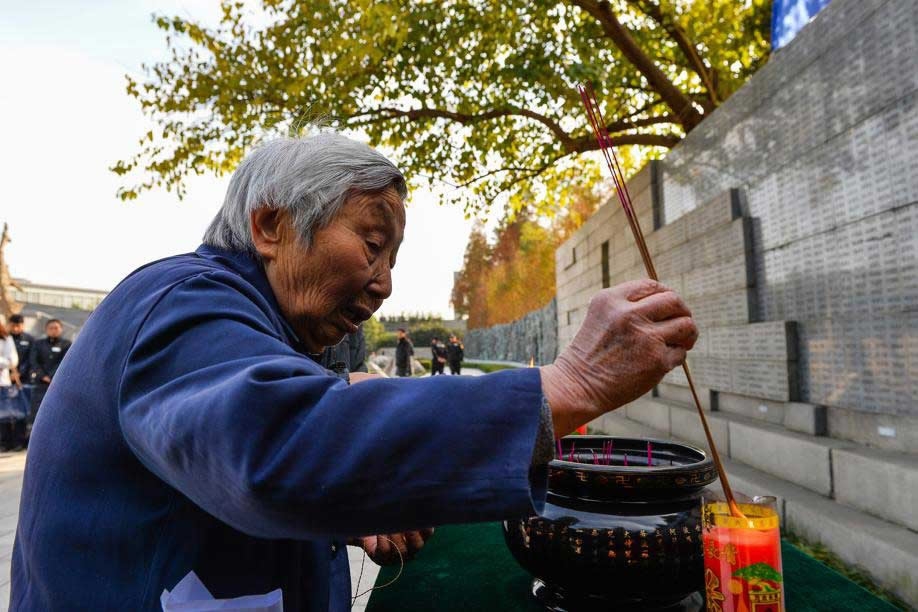
Culture
13:49, 13-Dec-2017
The Last Witness: 'I just want an apology before I die'
By Tao Yuan

Yang Cuiying, 93, was in a refugee camp in Nanjing when Japanese troops stormed the city. Four of her family members were killed in front of her eyes, including her two-year-old baby brother.
Here’s her account:
"I'm 93 years old. Back then, I was only 12 years old. My father was only in his thirties when the Japanese killed him. He was a farmer.
On December 13, 1937, Japanese soldiers started the mass killing. In August, Japanese planes had already started bombing our city. The bombing lasted for four months. That’s when the troops stormed Nanjing.
Back then, Nanjing was the capital of China. That was why they killed so heavily.
Chiang Kai-Shek was the leader. He realized the situation was out of control, so he moved the capital to Chongqing. Government workers and their family members also moved to Chongqing. Those who had money all fled.
Poor families like ours didn't have the money to escape, so we gathered in refugee camps. Each room would house many families. We didn’t bring anything but blankets, since December was cold.
Weren't they bad, the Japanese? On December 13, 1937, they killed in droves in the refugee camps. Some they shot to death, some they stabbed to death with bayonets. And long guns and bayonets they were.
That was what they killed my father with."

December 2, 2017: Yang Cuiying, a survivor of Nanjing Massacre, burns incense in remembrance of victims for her family at the Memorial Hall of the Victims in Nanjing Massacre by Japanese Invaders. /Xinhua Photo
December 2, 2017: Yang Cuiying, a survivor of Nanjing Massacre, burns incense in remembrance of victims for her family at the Memorial Hall of the Victims in Nanjing Massacre by Japanese Invaders. /Xinhua Photo
"I had asked father to hold my baby brother, and knelt down to beg the Japanese not to kill my father. They hit me and I lost my hearing in one ear.
And then, they killed my uncle and my grandfather as well. My baby brother they stomped to death with their big leather boots. He was only two years old.
My mother was pregnant with another baby. Five days after my father was killed, she gave birth to that baby. We had nothing to eat. Her newborn didn’t have anything to eat and starved to death. My mother cried herself blind.
The streets were filled with dead bodies. They killed everyone, more than 300,000 people.
Not long after, the Japanese recruited for their factories, so I went. I had no choice. If I didn’t work, my family would starve.
We worked from seven in the morning to seven in the evening. Nobody was allowed to speak. If us factory workers talked with one another, the Japanese would beat us. I was still young, thirteen, or was I fourteen or fifteen, I don’t remember. They assigned me to a sewing factory, where I sewed buttons onto their military uniforms.
But they didn't pay us money. They only gave was a quarter kilo rice, and a quarter kilo dried fruit. That was our salary.
My little sister would pick some wild herbs. That's how the family got by. And it went on for years. Until August 15, 1945, when the Japanese surrendered, we were still working in the factory.
We suffered every misery. Our families were killed. And those who survived suffered so much as well.
I can't forget. I struggle to hold back by tears whenever I think of my father. There’s not a single day when I don't miss them.
The Japanese government, no one's asking them to compensate. All we want is an apology. That would be some consolation for us. That’s the only thing I want for this life. I'm 93 years old now. Will I live to see that day?"

SITEMAP
Copyright © 2018 CGTN. Beijing ICP prepared NO.16065310-3
Copyright © 2018 CGTN. Beijing ICP prepared NO.16065310-3